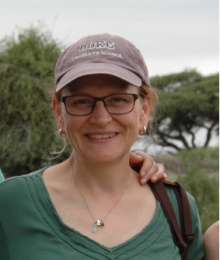The medicine of life: Social life and survival in primates

Susan Alberts
DUKE University
Link to seminar: https://umontpellier-fr.zoom.us/webinar/register/WN_ziFGU7rPTseIckkYUycxcA
https://sites.duke.edu/albertslab/
Longitudinal studies of animal social behavior and demography allow us to understand how environments at one stage of life affect fitness outcomes at another stage of life. This question is important both in the biological sciences and in the human social sciences. Here, I briefly review evidence from the human social sciences that document, and raise important questions about, the profound links between early life, adult life, and longevity. Next, I draw parallels between those studies and biological studies of wild animal systems, where researchers have long studied these links. I argue that wild animal systems, by answering questions that are difficult or impossible to answer in human studies, shed light on the deep evolutionary roots of the human sensitivity to the social environment. They also provide insight into the mechanisms by which environments at one stage of life affect survival outcomes at a later stage of life. Most of the examples I discuss come from my long-term research project, the Amboseli Baboon Research Project.
Recent publications:
1 Tung et al. 2016 Cumulative early life diversity predicts longevity in wild baboons. Nature Communications 7:11181.
2 Zipple et al. 2021 Maternal death and offspring fitness in multiple wild primates. PNAS 118 : e2015317118.
3 Zipple et al. 2019 Intergenerational effects of early adversity on survival in wild baboons. eLife 8:e47433.
4 Campos et al. 2021. Glucocorticoid exposure predicts survival in female baboons. Science Advances, in press.


